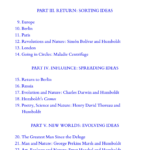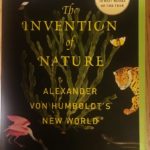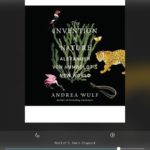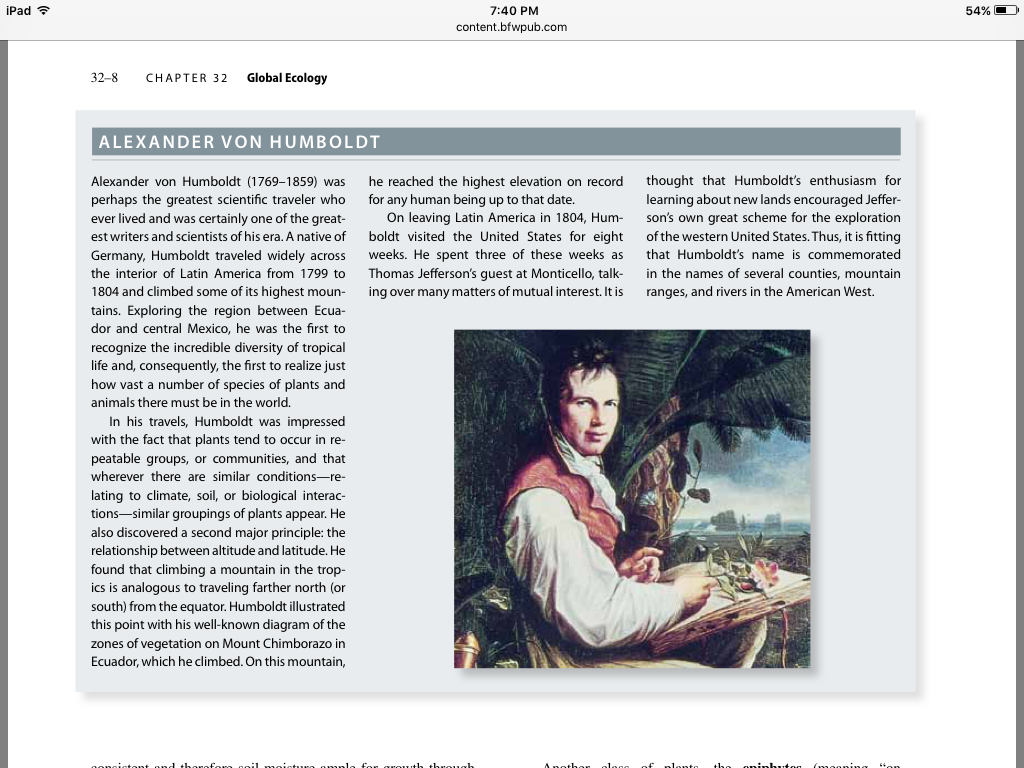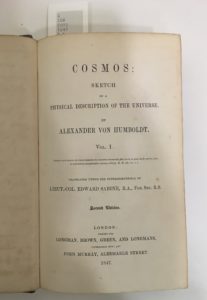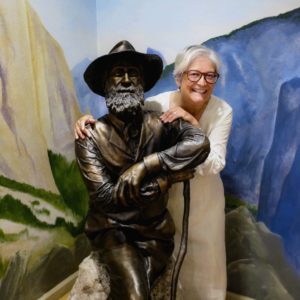In the Washington Post, Michael Dirda recently listed 22 books that he re-reads. I also have a weirdly catholic list of books that I like to re-visit regularly. Of course, Tolkien’s Lord of the Rings is on my list. Legendary Dracula actor, Christopher Lee (1922-2015), who played Saruman in the films reportedly re-read them every year.
I’ve noticed that as I get older, fewer titles are making it onto my re-read list. A notable recent addition is Andrea Wulf’s best-selling biography of Alexander von Humboldt. This 2015 book quickly became one of my all-time favourite re-reads. I love The Invention of Nature so much, that I own it in three different formats: hard copy, e-book AND audiobook version, rather like owning an LP, cassette tape, CD and mp4 of your favourite song!
- E-book
- Hard copy
- Audiobook
When he died, aged 89 and a half, von Humboldt was one of the most famous people in the world as well as the most influential scientist. He was consulted by Charles Darwin, hung out with Simón Bolívar, and conferred with Joseph Banks. But, by the early 1900s, von Humboldt had largely declined into obscurity in the anglophone world, save for the obligatory box about him in undergraduate text books.
Andrea Wulf visited lots of archives, sifting through von Humboldt’s letters, journals, books, and the many accounts about him, to breathe life back into the memory of this energetic, tenacious scientist. Von Humboldt trained as a mining engineer, travelled the world making observations and collecting numerous samples, corresponded with an extraordinary number of people, and often ran low on research funds. In the New York Review of Books, Nathaniel Rich writes “At times The Invention of Nature reads like pulp explorer fiction, a genre at least partially inspired by Humboldt’s own travelogues.”
Wulf reminds us that von Humboldt shaped an enormous number of the concepts that are fundamental to ecology and biogeography today, from gradients to biomes, to the importance of instrumentation for measuring the environment. As well, von Humboldt recognized the importance of Indigenous knowledge over two hundred years ago and had an interest in arts and poetry – Goethe was a close friend! I really can’t recommend this book highly enough. It’s an engaging read from cover to cover but is also the kind of book where you can dip into just one of the sections to revisit Von Humboldt’s influence on, say, John Muir, who became central to the creation of the US National Park system.
But don’t believe me. The Invention of Nature was well received when it came out in 2015, garnering many positive reviews. Here are a few:
- David A. Morrison, The Invention of Nature: The Adventures of Alexander von Humboldt, the Lost Hero of Science (UK). The Invention of Nature: Alexander von Humboldt’s New World (USA). — By Andrea Wulf., Systematic Biology, Volume 65, Issue 6, November 2016, Pages 1117–1119, https://doi.org/10.1093/sysbio/syw062
- Nathaniel Rich in the New York Review of Books (Oct 22, 2015). The Very Great Alexander von Humboldt: The Prussian naturalist has been largely forgotten, yet his ideas have never been more alive.
- Colin Thubron in The New York Times
- Simon Winder in The Guardian


